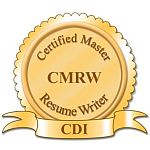Open any paper, turn on any radio, watch any news program and you’ll hear the same message over and over and over and over again. “Things are awful.” Well, ya know what. If you hear anything frequently enough, you’ll eventually start buying into it and that negativity will start shaping your entire perspective. If you’re buying into the doom and gloom and everything you see is through “negative-colored glasses”, how many chances for greatness are you going to miss?
Recently, I’ve had resume clients almost apologetic for starting a job search “in these tough economic times.” I tell them, regardless the economy, in sales, a good rule of thumb to remember is it takes an average of 30 no’s to get a yes. Since you’re selling your most important commodities – your time and your talents – you better get busy collecting no’s so you can find that golden yes. Sure, it may take 40 or even 50 no’s to get a yes right now, but if you lock the door, hunker down, worry about what how awful things are and don’t even try, you’ll never hear a YES in your life.
Many years ago, while I was consternating over my own job change and relocation a friend of mind recommended getting a copy of A Guide for the Advanced Soul by Susan Hayward. The cover of the book instructs to “Hold a problem in your mind. Open this book to any page and there will be your answer.” OK, so I’m an old hippie … Anyway, I took her advice, asked the “What should I do question?” and opened the book to this passage:
You are given the gifts of the gods; you create your reality according to your beliefs. Yours is the creative energy that makes your world. There are no limitations to the self except those you believe in.
Jane Roberts, The Nature of Personal Reality
I read that quote in response to my question almost twenty years ago and I’ve never forgotten it. (By the way, I created my own reality, took the job and have no regrets.) I share that passage with you today as a challenge to change your perception of what is happening. We create our own realities is absolutely true. Sure, I’ve lost more money than I even want to think about in my IRA. And yes, I am concerned over the economy and future business, but I’ve not let it completely take over my life. I’m keeping my head down, working hard and expressing gratitude for every bit of business that comes my way – business, which in spite of what the news media says, is quite brisk.
Black Friday sales figures were greater than expected. Did it get reported as a positive sign? NO. I saw several headlines saying something like “Black Friday sales exceed expectation, but retailers and the market still cautious” – completely negating the positive note preceding the “but”. Unfortunately “Black Friday sales exceed expectations. YEA!!!” is not a headline that sells newspapers – either printed or virtual.
Whether you’re thinking about a career change, starting a job search, deciding to reenter the workforce, have been laid off from your current job or getting ready to launch a new business venture, remember, your attitude and your perception of your chances for success rest solely and completely in your hands.
Cautious optimism trumps needless worry every time. You’re in charge. Wasn’t it Henry Ford who said “Those who think they can and those who think they can’t are usually right”? Be someone who thinks they can – in your job search and your life.













